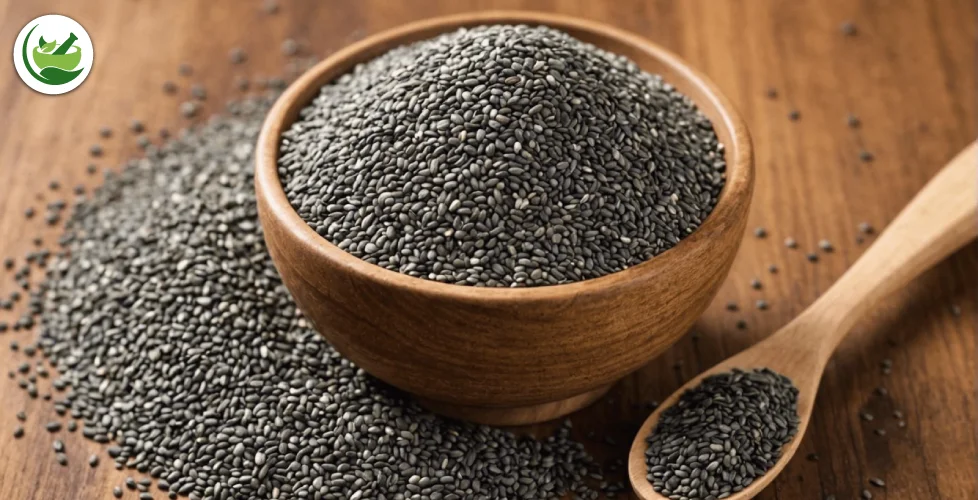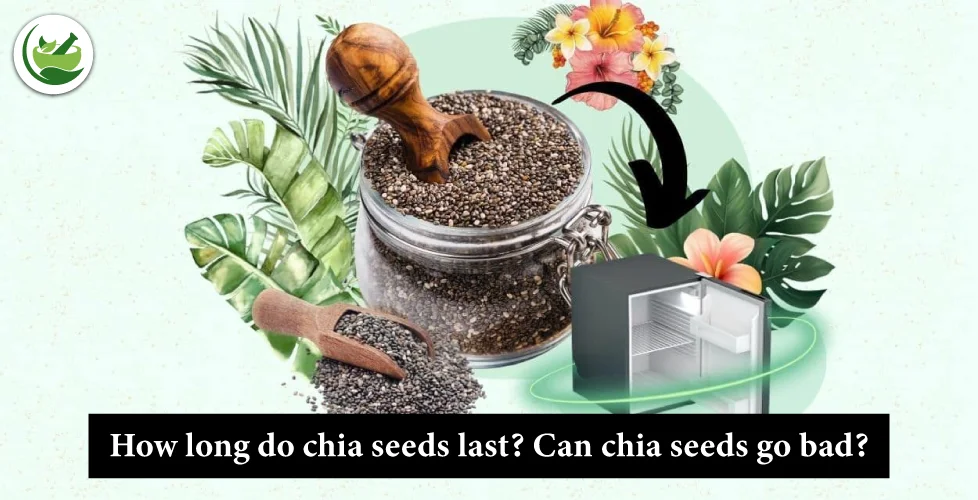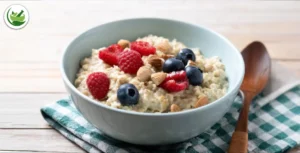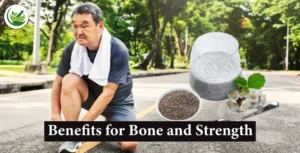Chia seeds, derived from the Salvia hispanica plant native to Mexico and Guatemala, have gained immense popularity due to their remarkable nutritional benefits and versatility in cooking. Packed with omega-3 fatty acids, fiber, and protein, chiaseeds are a staple in the pantry of health enthusiasts worldwide. However, despite their hardy nature, chiaseeds, like all natural products, have a shelf life and can go bad. In this blog, we will explore the longevity of chiaseeds, how to properly store them, and signs of spoilage.

Health Benefits of Chia Seeds
Chiaseeds are not only a superfood known for their rich nutritional content, but they also offer a myriad of health benefits that can significantly impact one’s well-being. From aiding in weight management to improving heart health, these tiny seeds pack a powerful punch in a small package.
Related blog Health Benefits of Black vs. White Chia Seeds
Chiaseeds are deceptively powerful given their small size. Below is what you get from two tablespoons of chiaseeds:
| Nutrient | Amount per 2 Tablespoons |
| Calories | 138 |
| Carbs | 12 g |
| Fiber | 10 g |
| Fat | 9 g |
| Protein | 4.7 g |
This robust nutritional content makes chiaseeds a powerhouse of health benefits.
Promoting Healthy Weight Loss
Chiaseeds are rich in fiber, aiding in prolonged satiety. A 2017 study found that consuming yogurt with 7 to 14 grams of chiaseeds as a mid-morning snack not only increased fullness but also decreased food intake at lunch, potentially facilitating healthy weight management by reducing overall calorie intake.
Reducing Heart Disease Risk
With 4 grams of omega-3 fatty acids and 9 grams of fiber per serving, chiaseeds are excellent for heart health. Soluble fiber, like that in chiaseeds, has been documented to lower high cholesterol levels, thereby decreasing heart disease risk.
Supporting stable blood sugar levels
Research indicates that chiaseeds can enhance insulin sensitivity and maintain stable blood sugar levels, which may boost your energy and mood. Stable blood sugar can also help minimize cravings associated with sudden blood sugar drops.
Related blog The Impact Of Chia Seed Benefits For Diabetes On Blood Sugar Management
Enhancing Digestive Health and Alleviating Constipation
Chiaseeds serve as a prebiotic, fostering the growth of beneficial bacteria in the digestive tract. When soaked, chiaseeds form a gel-like substance that aids the digestive system in clearing out waste. Additionally, the high fiber content in chiaseeds helps promote regular bowel movements and reduce constipation.
Related blog How The Benefits Of Chia Seeds And Diverticulitis Can Improve Your Digestive Health
How long do chia seeds last?
Chia seeds have an impressive shelf life when compared to other seeds and perishable foods. When stored properly, chia seeds can last:
- At room temperature: Typically, chia seeds can last about 2–4 years when stored in a pantry at room temperature. They need to be kept in a cool, dry place away from direct sunlight and heat to maximize their shelf life.
- In the refrigerator: Refrigerating chia can extend their freshness and viability. In the refrigerator, chiaseeds can last up to 5 years.
- In the freezer: For long-term storage, chia can be frozen, potentially extending their shelf life beyond 5 years. Freezing will not affect their texture or nutritional value.
Factors Influencing the Shelf Life of ChiaSeeds
The factors that influence the shelf life of chiaseeds are crucial for maximizing their nutritional benefits and ensuring their safety. From storage conditions to packaging, various elements play a role in determining how long these super seeds remain fresh and potent.
Several factors can influence how long chiaseeds can last before they go bad:
- Storage conditions: Chiaseeds should be stored in an airtight container to prevent moisture and pests from getting into the seeds. Exposure to moisture is one of the quickest ways chiaseeds can spoil.
- Temperature: They should be stored in a cool and dry place. High temperatures can cause the oils in chia to go rancid more quickly.
- Humidity: High humidity can promote the growth of mold. It’s essential to keep chiaseeds in an environment where humidity is controlled.
Can chia seeds go bad?
Yes, chia-seeds can go bad. Although they are more stable than many other seeds, they contain oils that can eventually go rancid. The presence of moisture can also lead to mold growth. It’s important to know the signs of spoilage to prevent consuming spoiled chiaseeds, which can be harmful to your health.

Signs of Spoilage
- Smell: Fresh chia have a mild, nutty scent. If they smell sour or off, it could indicate that they have gone rancid.
- Taste: A bitter or unpleasant taste is a strong indicator that chia are no longer good.
- Appearance: Any visible mold or a noticeable change in color can mean the seeds have spoiled. Look for any white or greenish specks that are not part of the original seed.
- Texture: Fresh chia are dry and crunchy. If they feel sticky or oily, it could indicate spoilage.
Related blog How Long to Soak Chia Seeds: Tips and Techniques
Tips for Storing Chia Seeds
Chia seeds are a pantry staple for health enthusiasts, but proper storage is key to preserving their quality. Discover the best practices for storing chia to maximize their shelf life and retain their nutritional value.
To maximize the shelf life of chia seeds, follow these storage tips:
- Use airtight containers: Store chia seeds in airtight containers to keep out moisture and pests. Glass jars with tight-fitting lids are ideal.
- Keep them cool and dry. Avoid storing chia seeds near stoves, ovens, or areas that are exposed to direct sunlight.
- Consider refrigeration: If you live in a warm climate, consider storing your chia seeds in the refrigerator to extend their freshness.
- Label and date: Keep track of when you purchased or packaged your chia seeds. This practice helps you use them within their optimal freshness period.
Related blog The Expansion Timeline: How Long Does It Take For Chia Seeds To Expand?
Conclusion
Chia seeds are a wonderful addition to any diet, offering extensive health benefits and a remarkable shelf life when stored correctly. By understanding how to store them properly and recognizing the signs of spoilage, you can ensure that your chia seeds remain fresh and nutritious, ready to enhance your meals and health. Whether added to smoothies, yogurt, or baked goods, chia seeds are a versatile superfood that can provide essential nutrients for years when cared for properly.






